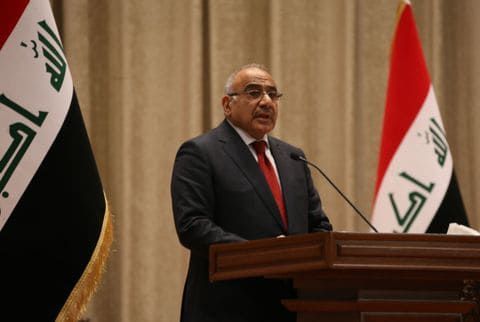Her brother’s keeper? Iraq’s only female cabinet minister could lose her job over alleged family ties to ISIS.

Iraq’s prime minister is weighing whether to accept the resignation of his education minister after allegations surfaced online that her brother had been a senior figure in the Islamic State’s de facto capital of Mosul.
Prime Minister Adel Abdul Mahdi’s decision could have a far-reaching impact on a society that is emerging from a costly war against the militants and is struggling to heal from the deep social and political divisions caused by the Islamic State occupation.
Shaima al-Hayali, an academic from Mosul University, was barely one week into her ministerial post when members of a rival political bloc alleged that her brother had been an administrator for the Islamic State in Mosul, Iraq’s second-largest city. Her case is the highest-profile instance of what human rights groups and some Iraqi politicians have described as overzealous collective punishment of people whose family members worked with the militant group, whether by force or choice.
Thousands of Sunni Iraqis have been convicted and sentenced to death or life in prison for having ties to the Islamic State in trials that legal experts say are designed for revenge, not due process. Hundreds of thousands — the majority women and children — have been prevented from returning to their homes and languish in decrepit camps for having a relative accused of fighting for the Islamic State. The Iraqi government has been unable to rein in tribal courts that have permitted revenge killings against people with even the most tenuous links to the extremists.
The combination of state and street retribution has raised concerns that Iraq is creating a pariah class whose suffering and lack of integration could undermine stability — while fueling the next wave of militant insurgency.
“Yet another instance where individuals are being subjected to collective punishment for their relative’s alleged #ISIS affiliation,” Belkis Wille, the Iraq researcher for Human Rights Watch, said in a tweet following Hayali’s resignation.
The accusations highlighted two Islamic State propaganda videos purporting to show the brother, Laith al-Hayali, praising life in Mosul under the Islamic State on the eve of the U.S.-backed military campaign to oust the militants from the city.
It was impossible to verify if the videos were genuine, and Laith al-Hayali’s whereabouts are unknown. But his sister responded quickly by tendering her resignation last week “in protest” of the implication that she was guilty by association, she said in a statement.
In the statement, she said her brother was forced at gunpoint to work for the Islamic State, like thousands of other civil servants who were threatened with death if they did not help the group administer the city of nearly 2 million people. She asserted that Laith al-Hayali “never touched a weapon and never helped kill a fellow Iraqi citizen,” and added that she “disowns” any criminal or terrorist that spilled Iraqi blood.
But the minister, who had been confirmed by parliament with little opposition, has few defenders, illustrating the deep trauma caused by the Islamic State’s occupation of nearly a third of Iraq.
Critics have said Laith al-Hayali was not a lowly state employee. He had been head of Mosul’s water administration — a job he continued under the Islamic State, local media reports said. One report, quoting activists in Mosul, said his son had carried out a suicide bomb attack.
Shaima al-Hayali could not be reached for comment.
Abdul Mahdi, who has struggled to complete his cabinet since being appointed prime minister in October amid political jockeying for posts, has given few clues on whether he will stand with Hayali or accept her resignation.
“If he was in a strong position, he could survive sticking with her and simply say, ‘She, herself is accused of no crime and is qualified,’ ” said a Sunni lawmaker who spoke on the condition of anonymity to speak frankly on a sensitive issue. “But he is under too much pressure. He will abandon her and send the message that thousands of Sunnis have no future in Iraq.”